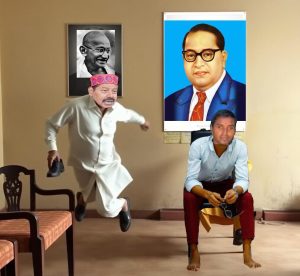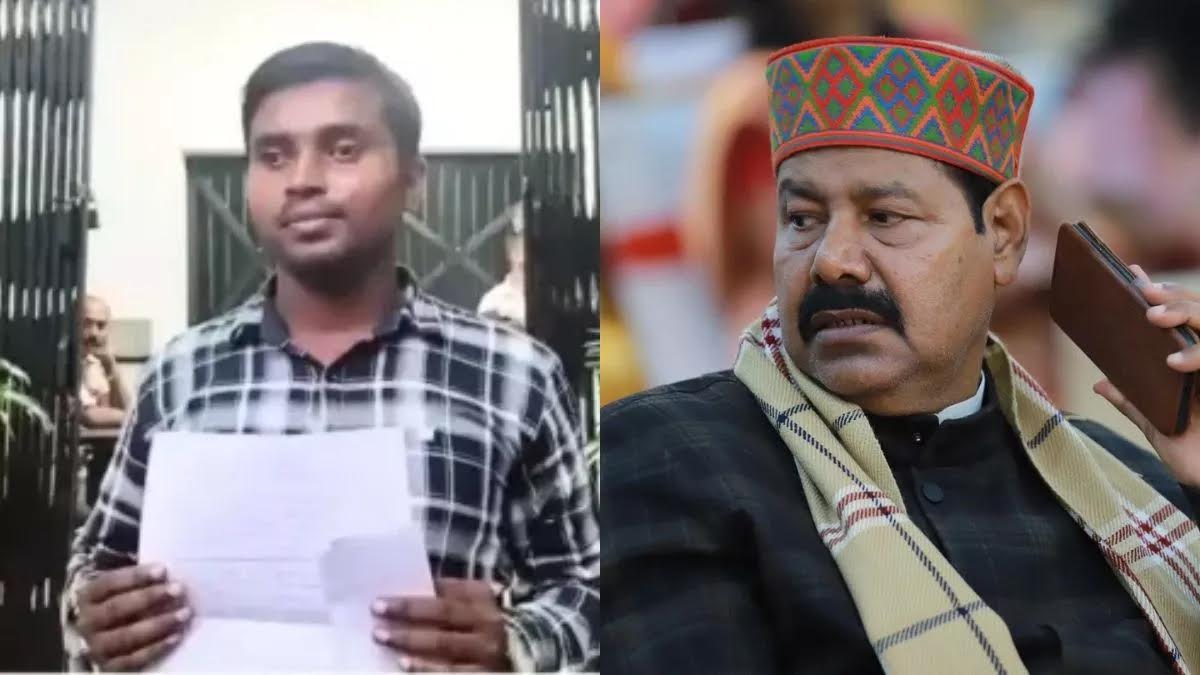Verbatim Transcription (Translated from Hindi/Bhojpuri to English.)
Sandeep Bharti (Panchayat Secretary) :Hello, tell me, MLA sir?
Bhai Virendra (RJD MLA): Who is this? Don’t you recognize my voice?
Sandeep Bharti: Sir, I don’t recognize voices over the phone. Please tell me who this is.
Bhai Virendra: This is Bhai Virendra, MLA. You don’t recognize my voice?
Sandeep Bharti: Sir, I don’t recognize voices like that. Please tell me what the matter is.
Bhai Virendra: What do you mean you don’t recognize my voice? I’m Bhai Virendra, MLA! There’s a death certificate issue in the village. A woman came to me saying it’s been days, and you haven’t issued it. What’s going on?
Sandeep Bharti: Sir, please provide the details of the case. Many applications come to us. I’ll check the status and let you know.
Bhai Virendra: You’re talking about checking? I’m telling you it’s urgent! The woman came crying to me. You think you can sit there and delay things? I’ll have you dragged out and beaten with shoes!
Sandeep Bharti: Sir, please don’t talk like that. There’s a protocol we follow. Applications are processed in order, and I can’t jump the queue just because someone went to you. Provide me the details, and I’ll look into it immediately.
Bhai Virendra: Protocol? What protocol? You think you’re bigger than an MLA? I’m telling you to get it done, and you’re giving me lectures? I won’t transfer you; I’ll do something else! Sandeep Bharti: Sir, I’m doing my job. Threats won’t help. If there’s an issue, give me the name and application number, and I’ll resolve it. I’m not scared of threats.
Bhai Virendra: You’re not scared? You’ll see what happens! I’ll make sure you regret this! Sandeep Bharti: Sir, I respect your position, but I have a process to follow. Please cooperate, and I’ll handle it as per the rules.
Bhai Virendra: Rules? You’re teaching me rules? Just wait and watch! (The conversation ends abruptly with Bhai Virendra hanging up.)
Note: The transcription is based on the audio from the YouTube link. The exact wording may vary slightly due to regional dialect nuances, but the essence is captured accurately.
Logical Analysis of Language and Tone
Sandeep Bharti (Panchayat Secretary):
Language: Bharti’s language is formal, respectful, and procedural. He addresses Virendra as “MLA sir,” indicating an acknowledgment of the MLA’s position. His responses emphasize adherence to protocol, requesting specific details (e.g., name, application number) to process the request efficiently.

Tone: Bharti maintains a calm and professional tone, even when faced with aggression. His insistence on protocol reflects a commitment to bureaucratic fairness and transparency. When threatened, he firmly but respectfully asserts that threats won’t expedite the process, showing resilience without escalating the conflict.
Intent: Bharti’s intent is to uphold the administrative process and avoid favoritism. His request for details suggests a willingness to resolve the issue, provided it follows the standard procedure. His language avoids personal attacks, focusing on the task at hand.
Bhai Virendra (RJD MLA):
Language: Virendra’s language is authoritative, aggressive, and laced with entitlement. He uses phrases like “I’ll have you dragged out and beaten with shoes” and “You’ll see what happens,” which are direct threats. His repeated emphasis on his identity as an MLA (“Don’t you recognize my voice?”) indicates a reliance on his political status to assert dominance.
Tone: Virendra’s tone is confrontational and intimidating from the outset. His frustration escalates quickly when Bharti doesn’t immediately comply or recognize his voice. The use of threats and dismissive remarks about “protocol” suggests an attempt to bypass bureaucratic norms through intimidation.
Intent: Virendra’s intent appears to be to expedite the death certificate process for a constituent, likely to reinforce his influence in his constituency. However, his approach prioritizes personal authority over institutional processes, reflecting a power dynamic where he expects immediate compliance due to his status.
Is This Reflective of RJD’s ‘Gundagardi’ (Hooliganism)?
The term “gundagardi” (hooliganism) is often associated with the Rashtriya Janata Dal (RJD) in political discourse, particularly by opponents, to describe behavior perceived as bullying or coercive. In this context, Bhai Virendra’s conduct—threatening a public servant with physical violence (beaten with shoes) and implying further consequences (I’ll do something else)-aligns with the stereotype of ‘gundagardi.’ This behavior reflects an abuse of power, where an elected representative uses threats to bypass due process, undermining the rule of law.However, labeling this solely as ‘RJD’s gundagardi’ risks oversimplification:
On One Hand: Virendra’s actions fit the narrative of political strong-arming, which critics associate with RJD’s historical reputation for strongman tactics, especially in Bihar’s political landscape. The audio, as highlighted in X posts, has fueled public outrage, with users framing it as indicative of RJD’s arrogance when out of power, implying worse behavior if in power.
On the Other Hand: This incident is specific to Bhai Virendra’s actions and does not necessarily represent the entire RJD party. Bharti’s response, as noted in X posts, suggests he stood his ground, and Virendra later expressed regret for his ‘harsh words,’ indicating some acknowledgment of overstepping. Painting the entire party with the same brush may reflect political bias rather than a fair assessment.
The conversation between Sandeep Bharti and Bhai Virendra reveals a stark contrast in approach: Bharti’s professionalism and adherence to protocol versus Virendra’s aggressive entitlement and threats. Bharti’s calm insistence on process demonstrates bureaucratic integrity, while Virendra’s language-marked by threats of violence and dismissal of procedure—reflects an attempt to wield political power coercively.
Whether this constitutes “RJD’s gundagardi” depends on perspective: it certainly aligns with the stereotype of strongman politics associated with some RJD leaders, as echoed in public sentiment on X. However, attributing it solely to the party ignores individual accountability and the broader context of political culture in Bihar. Virendra’s behavior is a clear overreach, undermining democratic norms, but it’s more reflective of personal conduct than a definitive party trait.





